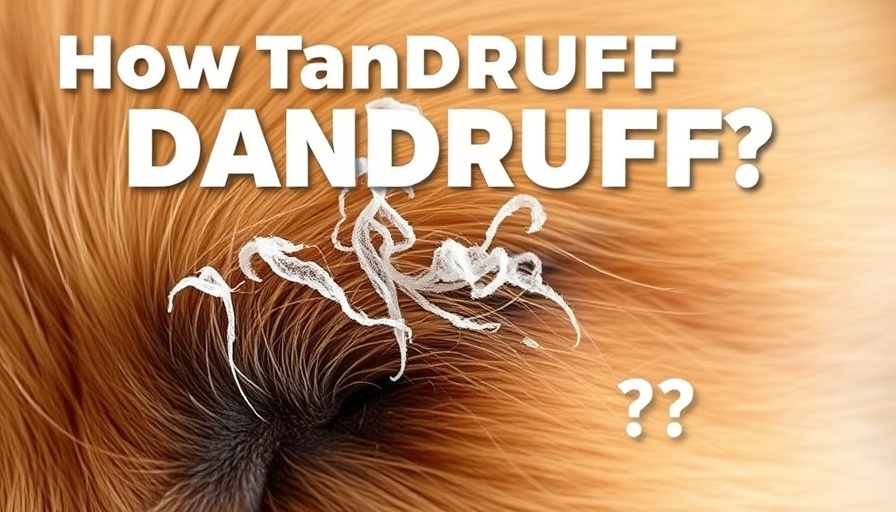
Understanding Dog Dandruff and Its Causes
Dog dandruff, much like the flaking skin we humans experience, is often a sign of other underlying health issues. While it’s common for dogs to have a few flakes here and there, excessive dandruff could indicate problems such as dry skin, allergies, or even hormonal imbalances. A well-balanced diet is crucial in preventing this issue, as nutritional deficiencies can lead to skin problems. Ingredients like omega-3 fatty acids, found in fish and certain oils, play a significant role in keeping your dog’s coat and skin healthy.
Common Causes of Dandruff in Dogs
Dandruff in dogs can be caused by several factors:
- Allergies: Environmental allergens or specific food allergies can irritate your dog’s skin, prompting excessive oil production and leading to flaking.
- Dry Air: Especially in colder climates, low humidity can sap moisture from your dog’s skin, resulting in dryness and dandruff.
- Skin Infections: Bacterial or fungal skin infections can cause inflammation and contribute to the development of dandruff.
- Diet: A nutrient-deficient diet can disrupt your dog's skin health. Ensuring your dog receives adequate proteins and fatty acids is vital for maintaining skin moisture.
- Hormonal Imbalances: Aging can lead to hormonal changes that may affect oil production in the skin, resulting in flakiness and dryness.
Natural Remedies to Manage Dog Dandruff
Fortunately, treating dog dandruff doesn’t always require a trip to the vet. There are several natural home remedies that can alleviate this condition:
- Coconut Oil: As a natural moisturizer, coconut oil can be applied directly to dry areas or mixed into food to improve skin hydration.
- Apple Cider Vinegar: This can balance the skin's pH and deter fungal infections. Mix it with water and spray on the coat for effective results.
- Omega-3 Supplements: Including fish oil capsules in your dog’s diet can enhance coat health and limit the occurrence of dandruff by reducing inflammation.
- Oatmeal Baths: Oatmeal is a fantastic remedy for soothing itchy skin. Regular bathing with oatmeal-infused solutions can restore moisture and alleviate irritation.
- Grooming: Frequent brushing can help prevent dead skin buildup and distribute natural oils across your dog’s coat, maintaining skin health.
When to Consult a Vet
While many instances of dog dandruff can be treated at home, persistent or severe cases warrant a veterinary visit. A veterinarian can rule out underlying conditions such as hormonal disorders or severe allergies. Early intervention is key, especially if your dog shows symptoms beyond simple dandruff, like open sores or hair loss.
Conclusion: Care for Your Canine Friend
Dog dandruff can be a manageable condition with the right care and attention. Understanding the potential causes and employing natural remedies can keep your furry friend comfortable. While minor flaking may be easy to treat, be vigilant for signs that indicate a more severe issue. Always prioritize your dog’s health: a healthy diet and proper grooming habits can lead to a happy, flake-free pup!
 Add Row
Add Row  Add
Add 




 Add Row
Add Row  Add
Add 

Write A Comment